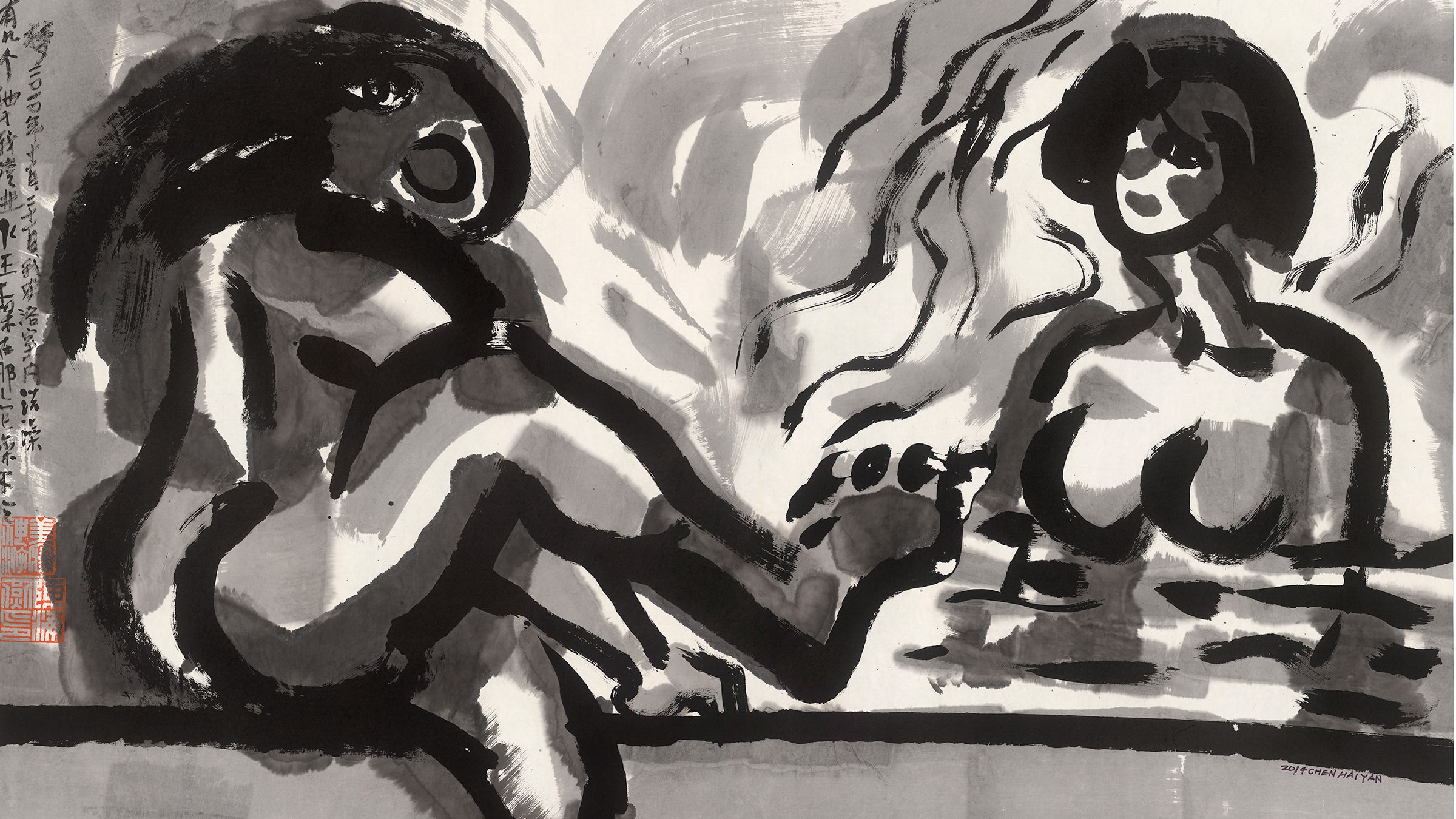Talk
April 11, 2019 / 18:30
As part of the exhibition Out of Ink: Interpretations from Chinese Contemporary Art, Pera Museum presents a talk by the curator Karen Smith in conversation with the artists Tang Bohua, Jian-Jun Zhang and Zhou Fan.
Out of Ink: Interpretations from Chinese Contemporary Art explores the essential ideals of the ink painting tradition as manifest in the work of 13 contemporary artists at work in China today. Their art does not necessarily rely upon conventional materials – ink, paper, or brush – but encapsulates the cultural spirit of ink. The experimental forms of expression that underscores their practice are a prism through which to understand how artists are rethinking the conventions of ink to forge new ties to the present cultural context, and enrich this weighty tradition in the process. The exhibition features Tang Bohua’s The Country of Summer Insects, Jian Jun Zhang’s 1000 Character Text and Zhou Fan's Phobia.
Karen Smith
Karen Smith has been based in China for more than two decades working in the field of contemporary art. Since 2013 she has been director of the contemporary art museum OCAT Xi’an. She is also curator-at-large for the Shanghai Center of Photography (SCoP).
Tang Bohua
Tang Bohua was born in 1986, in Hunan province, China. He graduated from the print-making department of China Art Academy, Hangzhou, in 2009. After graduation, having settled in Beijing, he co-founded the independent production studio Ink Man Culture, where he took the role of director. The studio’s first major film work was The Country of Summer Insects, completed in 2013. The film has been screened at the following film festivals: 60th Oberhausen International Short Film Festival; 24th Zagreb World Animation Festival; 68th Edinburg International Film Festival; 7th Polish International Animation Festival; 25th Sao Paulo International Short Film Festival.
Jian-Jun Zhang
Jian-Jun Zhang was born in 1955 in Shanghai. He graduated from the Fine Arts Department of Shanghai Drama Academy in 1978. In 1987-88, Zhang was supported by the Asian Cultural Council in New York to visit the US for research in contemporary art. In 1989, he moved to New York to develop his career as an artist. In 1990, Zhang received a grant from the Pollock-Krasner Foundation, and again in 1996. Most recently, in 2014, Zhang received a Sculpture Award at the New York Foundation for the Arts. His work has been collected by San Francisco Asian Art Museum, Brooklyn Museum; M+ Museum, Hong Kong; Shanghai Art Museum; Yuz Museum, Shanghai, and Guangdong Art Museum.
Zhou Fan
Zhou Fan was born in Taiyuan, Shanxi province in 1983. He graduated from the Fine Art College of Shanxi University in 2006 with a BA in graphic arts and has worked as an independent artist since. Zhou Fan currently lives and works in Chengdu.
Free admissions, drop in. This event will take place in Pera Café. The talk will be in English with simultaneous Turkish translation.
Temporary Exhibition
Out of Ink: Interpretations from Chinese Contemporary Art explored the essential ideals of the ink painting tradition as manifest in the work of 13 contemporary artists at work in China.
Click for more information about the exhibition.


The exhibition Look at Me! Portraits and Other Fictions from the ”la Caixa” Contemporary Art Collection examines portraiture, one of the oldest artistic genres, through a significant number of works of our times. Through the exhibition we will be sharing about the artists and sections in Look At Me!.
Tuesday - Saturday 10:00 - 19:00
Friday 10:00 - 22:00
Sunday 12:00 - 18:00
The museum is closed on Mondays.
On Wednesdays, the students can
visit the museum free of admission.
Full ticket: 300 TL
Discounted: 150 TL
Groups: 200 TL (minimum 10 people)